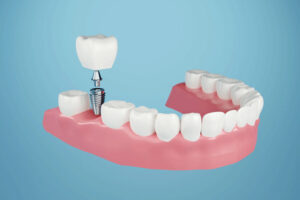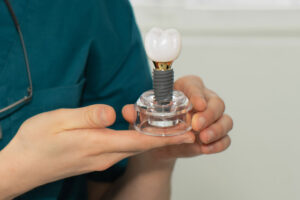Dentures used to have a bad rap. But thanks to advanced technology, a new generation of dentures offer comfort and are easier to live with than ever. The key is that when you first get dentures, you need to follow a few simple guidelines to make the transition smooth and painless.
At Sargon Dental, with offices in Encino and West Hollywood, California, and Pleasant Grove, Utah, our experienced team — Sargon Lazarof, DDS, Dan Dansie, DDS, and Fahtema Sadat, DDS — are experts in helping patients adjust to dentures. Here are some of their top tips for easing the transition.
Break your dentures in
Like a new pair of shoes, you need to break in your dentures.
Wear your dentures for a period, then remove them and take a break. Extend the length of time you keep them in each day until they feel comfortable and natural. If you develop sores in your mouth at any time, come in to see us.
Put in some practice time
The new shoes analogy works here, too. If you aren’t used to the height and stiffness of a new pair, it’s easy to trip and fall. Similarly, if you’re not used to wearing dentures, you may dribble drinks, drop food, or have difficulty speaking.
All you need is some practice. Try eating some soft foods first and gradually add foods that are more difficult to chew until you get the hang of it. Practice speaking out loud in front of a mirror.
Clean your dentures well
Your mouth is full of bacteria. Most are harmless, but if left alone too long, they multiply and infiltrate little nooks and crannies where it’s hard to reach them and get rid of them, and eventually, infection sets in. That’s why brushing and flossing are so important.
Because your dentures live in that environment, they, too, are exposed to bacteria and are susceptible to plaque buildup. So when you brush your teeth in the morning and at night, brush your dentures, too. Use a soft-bristled brush and a gentle hand to remove the bacteria. When you go to bed, drop them in a denture cleaning solution to give them a good soak.
Keeping your dentures clean will make them last longer and protect your oral health.
Long-term living with dentures
Your dentures should give you years of wear if you take good care of them and keep up with your regular checkups and cleanings. But it’s a good idea to inspect them often to ensure they don’t show any signs of excess wear or damage. If you notice cracks, chips, or discoloration, come in to determine the problem and make adjustments if needed.
As always, if you have soreness, redness, or pain that lasts beyond your break-in period, let us know. Those are signs of ill-fitting dentures or underlying gum issues that need to be addressed right away.
Whether you just received your new dentures or are thinking about getting them, we can help you learn to live with them and love them. Contact us to request an appointment online.





